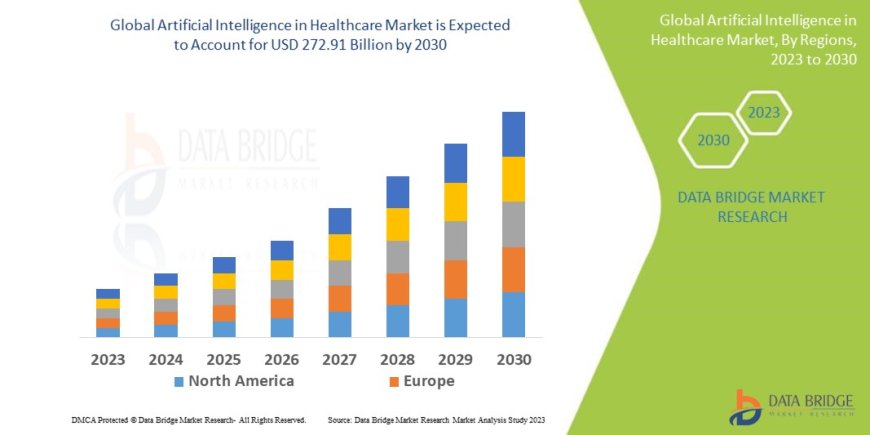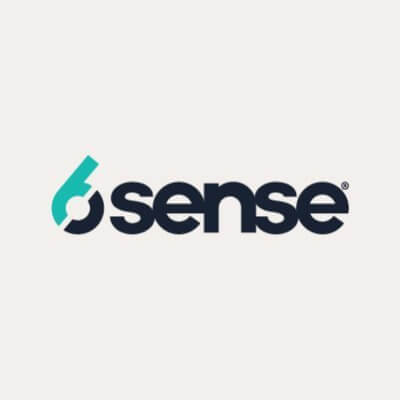Artificial Intelligence in Healthcare Market: Transforming Medicine with AI
The global artificial intelligence in healthcare market was valued at USD 22.23 billion in 2024 and is expected to reach USD 629.09 billion by 2032

Introduction to AI in Healthcare
What Is Artificial Intelligence in Healthcare?
Artificial Intelligence in Healthcare refers to the application of complex algorithms and machine learning models that mimic human cognitive functions in medical settings. These AI systems analyze vast datasets including medical images, patient histories, genomic information, and clinical notes to assist in diagnosis, treatment planning, and predictive modeling.
Why AI Matters in Modern Medicine
Today’s healthcare systems face mounting challenges, from aging populations to rising chronic diseases and strained medical infrastructures. AI technologies offer scalable solutions, such as enhancing diagnostic accuracy, automating administrative tasks, and enabling personalized medicine. The integration of AI into medical practice is already proving transformative across imaging, drug discovery, and remote patient monitoring.
Market Overview & Growth Forecast
Global Market Size and Projections
Projections for the Artificial Intelligence in Healthcare market vary across research firms. Some estimates suggest the market could grow from USD 26.57 billion in 2024 to USD 187.7 billion by 2030, while others anticipate an increase from USD 29.01 billion in 2024 to USD 504.2 billion by 2032. These forecasts demonstrate a remarkable CAGR, ranging between 37% and 44%, depending on the methodology used.
Other sources indicate the market may reach USD 208.2 billion by 2030, growing from USD 22.45 billion in 2023, while additional projections suggest a value of USD 68.7 billion by 2033 based on more conservative CAGR models.
Growth Drivers
-
Clinical Efficiency – Healthcare systems leverage AI to streamline workflows, reduce errors, and enhance productivity.
-
Enhanced Diagnostic Accuracy – AI in radiology and pathology is helping detect diseases earlier and more precisely.
-
Personalized Medicine – AI supports customized treatment plans based on genetic, lifestyle, and environmental factors.
-
Cost Reduction – AI lowers operating costs through automation, early detection, and risk prediction.
-
Digital Health Expansion – The proliferation of digital records and remote monitoring devices creates abundant data for AI systems.
Key Challenges
-
Regulatory Uncertainty – Strict regulations for healthcare devices slow down AI approval and deployment.
-
Privacy and Ethics – Managing sensitive patient data while ensuring privacy remains a top concern.
-
Integration Issues – Legacy systems in hospitals often clash with new AI technologies.
-
Workforce Gaps – There’s a shortage of professionals trained to implement and manage AI tools in healthcare environments.
Segmentation Analysis
By Component
-
Software Solutions dominate the market, offering platforms for clinical insights, patient engagement, and operational automation.
-
Hardware includes AI-integrated imaging equipment, wearable devices, and smart monitors.
-
Services cover implementation, support, and AI strategy consulting, essential for scaling adoption.
By Application
-
Diagnostics – AI aids in interpreting imaging, pathology slides, and lab results.
-
Therapeutics – Used in treatment planning, particularly in oncology and chronic disease management.
-
Administrative Workflow – Automates tasks like billing, documentation, and appointment scheduling.
-
Remote Monitoring & Virtual Assistants – AI-powered chatbots and apps support patient care beyond hospitals.
By End User
-
Hospitals and Clinics are primary adopters of AI technologies to manage increasing patient loads.
-
Pharmaceutical Companies utilize AI in drug development, trial matching, and pharmacovigilance.
-
Diagnostics Labs benefit from AI in high-throughput analysis and image interpretation.
-
Health Insurers use AI for fraud detection, underwriting, and personalized policy design.
Regional Outlook
North America
North America leads the AI in Healthcare market, accounting for over half of global revenue. The U.S. benefits from advanced IT infrastructure, widespread EHR adoption, and major technology companies heavily invested in healthcare AI.
Europe
Europe follows closely, supported by favorable regulations and public-private partnerships in digital health. Countries like Germany, the UK, and France are actively promoting AI use in healthcare through national strategies and funding.
Asia-Pacific
The Asia-Pacific region is experiencing the fastest growth, fueled by large population bases, government-backed AI initiatives, and increased healthcare digitization. Nations like China, India, and Japan are emerging as key markets.
Latin America & MEA
While still emerging, these regions are gradually adopting AI in healthcare, with Brazil, the UAE, and South Africa leading the charge. Investments in digital infrastructure and international partnerships are accelerating their progress.
Strategic Developments & Competitive Landscape
Key Players
Some of the most influential players in the Artificial Intelligence in Healthcare market include:
-
Microsoft
-
Google
-
Amazon Web Services (AWS)
-
IBM Watson Health
-
Philips Healthcare
-
GE Healthcare
-
Siemens Healthineers
-
Oracle Cerner
-
Tempus AI
-
NVIDIA
These companies are continually investing in AI tools that support clinical imaging, data analytics, predictive diagnostics, and decision-making.
Partnerships and Collaborations
There is a surge in collaborations between technology firms and healthcare providers. For instance, hospitals are deploying generative AI for radiology reports and triaging. National initiatives are also funding AI Centers of Excellence that drive innovation in population health, drug discovery, and remote diagnostics.
SWOT Analysis
Strengths:
-
High accuracy in diagnostics and decision-making
-
Enhanced patient engagement and treatment personalization
-
Cost savings through automation
Weaknesses:
-
Limited interoperability with traditional systems
-
Risk of algorithmic bias in clinical settings
-
Data dependency and technical complexity
Opportunities:
-
Expansion into rural and underserved regions
-
Growth in mobile and wearable AI health applications
-
Rising demand for mental health and behavioral AI solutions
Threats:
-
Ethical concerns over AI replacing clinical roles
-
Potential data breaches and misuse of patient data
-
Unclear regulatory frameworks across countries
Future Outlook & Opportunities
The Artificial Intelligence in Healthcare market is entering a golden era of opportunity. Innovations in generative AI are revolutionizing radiology, pathology, and clinical documentation. AI-powered telehealth platforms are expanding care access in remote areas. Integration with wearables and smartphones is enabling real-time, personalized care.
Moreover, AI is enabling breakthroughs in genomics, supporting precision medicine and cancer therapies tailored to individual patients. Public and private sectors are launching AI Centers of Excellence to train talent, drive innovation, and accelerate adoption.
The future is not just AI-assisted medicine—it is AI-integrated healthcare, where machines augment human care, not replace it.
Conclusion
The Artificial Intelligence in Healthcare market stands as one of the most transformative segments in the global health ecosystem. With the potential to enhance diagnostics, streamline operations, personalize care, and reduce costs, AI is becoming indispensable.
Despite regulatory and ethical hurdles, the momentum behind AI-driven healthcare is unstoppable. As investments surge and technologies mature, AI will continue to unlock value across the healthcare continuum. From USD 26 billion today to potentially over USD 500 billion by 2032, this market isn’t just growing—it’s reshaping the very foundation of modern medicine.
The next decade will define how AI in healthcare not only augments clinical practice but empowers a more efficient, inclusive, and predictive model of global health.
Get More Details : https://www.databridgemarketresearch.com/reports/global-artificial-intelligence-in-healthcare-market
Get More Reports :
https://www.databridgemarketresearch.com/reports/global-tire-inspection-system-market
https://www.databridgemarketresearch.com/reports/global-digital-experience-platform-market
https://www.databridgemarketresearch.com/reports/global-iron-ore-pellets-market
https://www.databridgemarketresearch.com/reports/global-chicken-wings-market
https://www.databridgemarketresearch.com/reports/global-edible-films-coatings-market

















































































































































